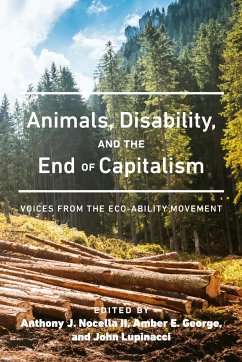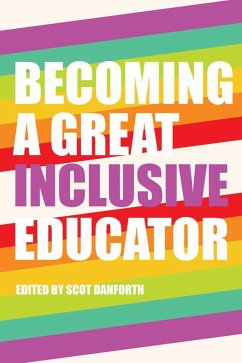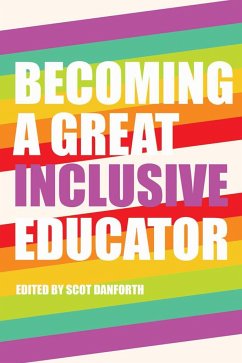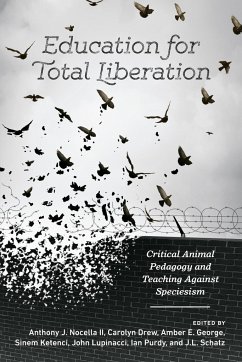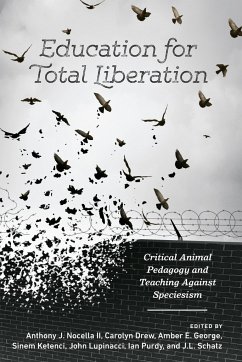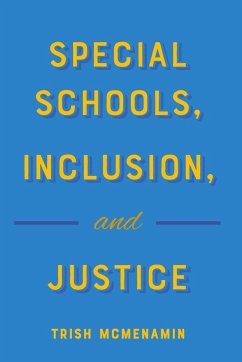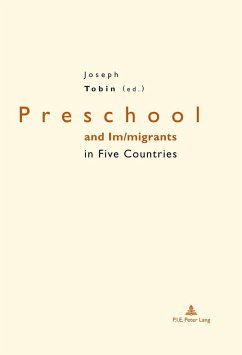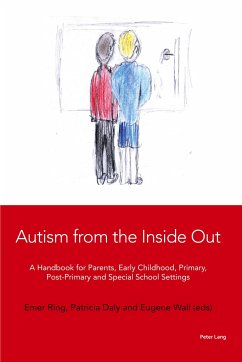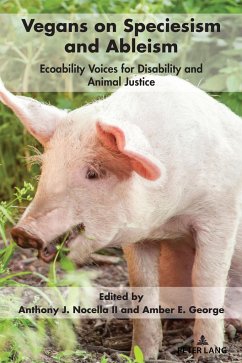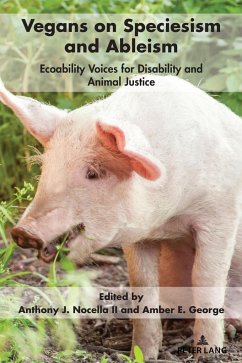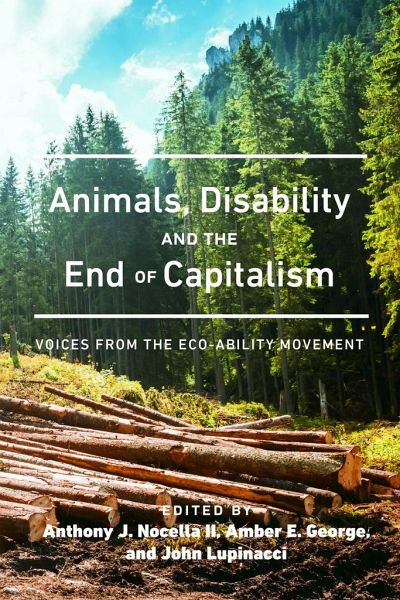
Animals, Disability, and the End of Capitalism
Voices from the Eco-ability Movement
Herausgegeben: Nocella II, Anthony J.; George, Amber E.; Lupinacci, John

PAYBACK Punkte
0 °P sammeln!
Animals, Disability, and the End of Capitalism is a collection of essays from the leaders in the field of eco-ability. The book is rooted in critical pedagogy, inclusive education, and environmental education. The efforts of diverse disability activists work to weave together the complex diversity and vastly overlooked interconnections among nature, ability, and animals. Eco-ability challenges social constructions, binaries, domination, and normalcy. Contributors challenge the concepts of disability, animal, and nature in relation to human and man. Eco-ability stresses the interdependent relat...
Animals, Disability, and the End of Capitalism is a collection of essays from the leaders in the field of eco-ability. The book is rooted in critical pedagogy, inclusive education, and environmental education. The efforts of diverse disability activists work to weave together the complex diversity and vastly overlooked interconnections among nature, ability, and animals. Eco-ability challenges social constructions, binaries, domination, and normalcy. Contributors challenge the concepts of disability, animal, and nature in relation to human and man. Eco-ability stresses the interdependent relationship among everything and how the effect of one action such as the extinction of a species in Africa can affect the ecosystem in Northern California. Animals, Disability, and the End of Capitalism is timely and offers important critical insight from within the growing movement and the current academic climate for such scholarship. The book also provides insights and examples of radical experiences, pedagogical projects, and perspectives shaped by critical animal studies, critical environmental studies, and critical disability studies.
Contributors include Sarah R. Adams, Marissa Anderson, Judy K. C. Bentley, Mary Fantaske, Amber E. George, Ava HaberkornHalm, John Lupinacci, Hannah Monroe, Anthony J. Nocella II, Nicole R. Pallotta, Meneka Repka, and Daniel Salomon.
Contributors include Sarah R. Adams, Marissa Anderson, Judy K. C. Bentley, Mary Fantaske, Amber E. George, Ava HaberkornHalm, John Lupinacci, Hannah Monroe, Anthony J. Nocella II, Nicole R. Pallotta, Meneka Repka, and Daniel Salomon.





